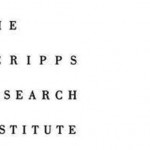 A recent RNA discovery by a team of scientists at the La Jolla, California-based The Scripps Research Institute could result in medical applications like improved viral vaccines and treatments for autoimmune conditions.
A recent RNA discovery by a team of scientists at the La Jolla, California-based The Scripps Research Institute could result in medical applications like improved viral vaccines and treatments for autoimmune conditions.
The study, which was published in Nature Immunology, identified a family of tiny RNA molecules that regulate immune responses in mammals. The researchers found that mice lacking the RNA molecules lost the ability to fight infections and mice overproducing the molecules developed a fatal autoimmune condition.
“This finding gives us insights into immune regulation that could be very helpful in a range of medical applications, from viral vaccines to treatments for autoimmune diseases,” Changchun Xiao, the senior investigator for the study, said.
B cells produce antibodies in mammals when they are assisted by T cells known as follicular helper cells. The researchers found that the miR-17~92 family of micro RNA molecules enable the interaction between T cells and B cells to produce antibodies.
The researchers developed mutant mouse lines in which some or all of miR-17~92 mRNAs were knocked out of T cells. The mutant mice showed a deficient antibody response to standard immune-provoking proteins.
The team also tested mice who produced four to six times the normal amount of miR-17~92s. The mice developed antibody responses to their own tissues and died.
The team found a key target gene of miR-17~92, which miR-17~92s suppress to allow for TFH cell differentiation. The gene codes for Phlpp2, a signaling inhibitor. By lowering levels of the protein, the T cells were still able to become TFH cells, even in mice with lower levels of miR-17~92s.
“Phlpp2 is one important target, but we believe there are others too, and we are now looking for those,” Xiao said.
Xiao and his collaborators plan to investigate how to manipulate miR-17~92s and TFH cell-related pathways to either increase antibody responses or lower antibody responses.
Source: Vaccine News daily

















